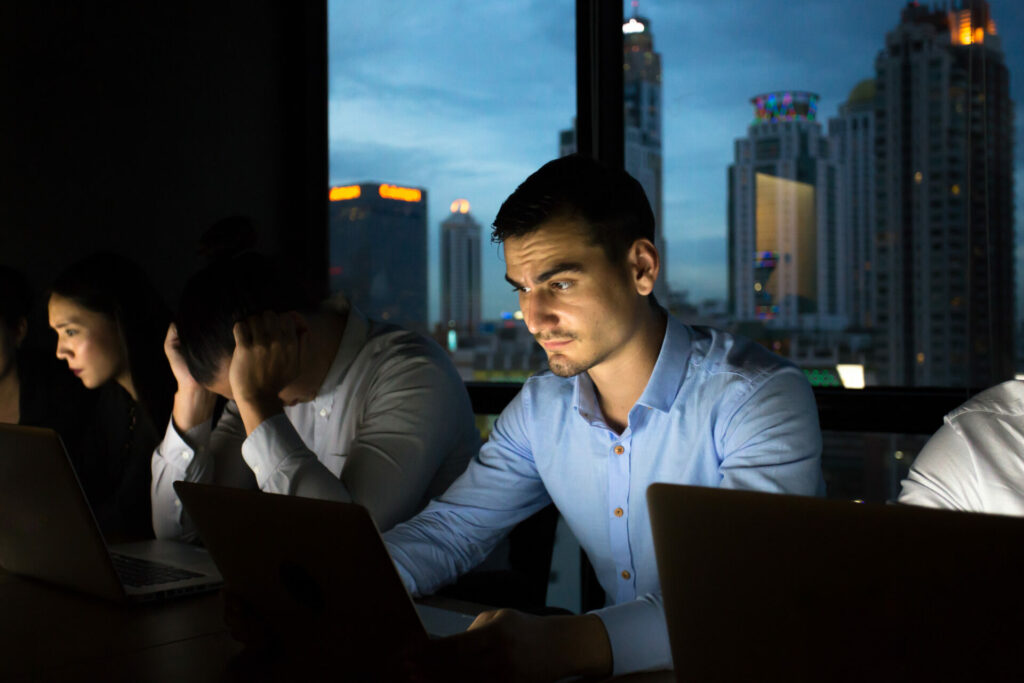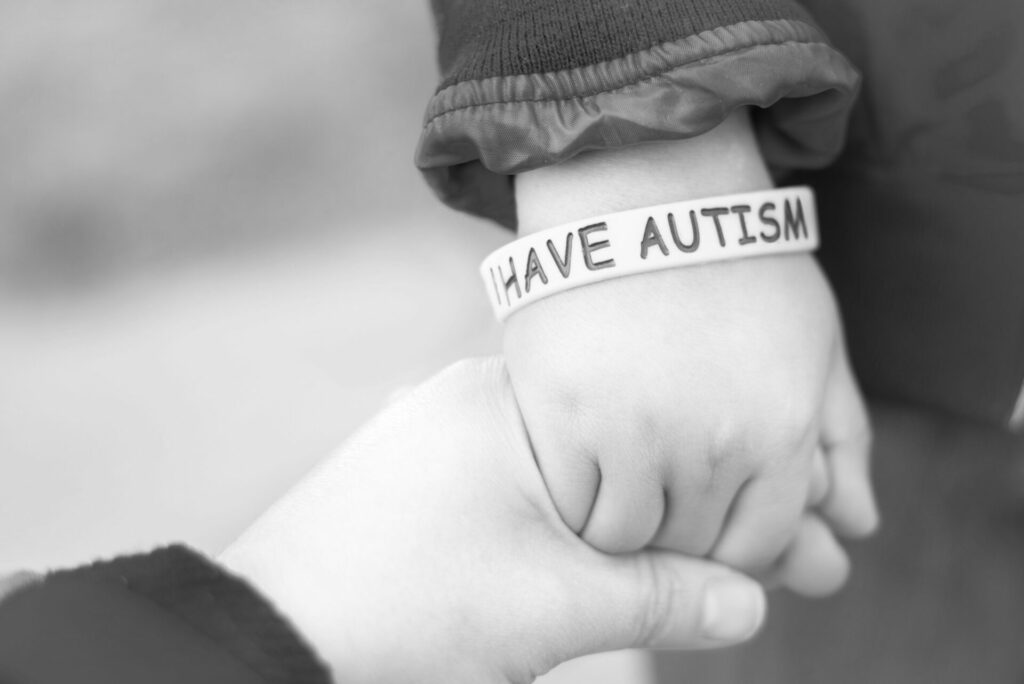It’s the end of a long but productive day of work. The kids are happy and in bed. You should be slipping into relaxation mode. But instead you feel uptight and unable to take it easy. No matter how much you try to unwind you can feel anxiety rising.
Sadly, you’re not alone. You are likely suffering from ‘stresslaxation’ – the paradoxical experience of anxiety induced by merely trying to relax – which rocketed during the pandemic and is now said to affect 30 to 50 per cent of the population.
The phenomenon is thought to prompt feelings of regret and self-blame, even though most people have never heard of the term. But stresslaxation is real. ‘It does seem as though it’s having a moment – it’s more commonplace than it seems, ‘ says clinical psychologist Frederick Heide, professor of psychology at Alliant International University, US.
‘The Covid pandemic has really driven this phenomenon home in a big way, with millions of people suddenly getting to experience this state. They were either working remotely and forced to define their working patterns for themselves, or forced to stop work altogether. Psychologically that’s been hugely stressful.’
Stresslaxation is a more pointed, everyday version of the experience of spending the first half of your fortnight holiday just getting into holiday mode, only to have to return just as you find it
Heide should know. He’s the man who first uncovered the idea of stresslaxation while researching at Penn State University 40 years ago. Stresslaxation, or ‘relaxation-induced anxiety’as it is also known, is a downward cycle, he discovered: stress is felt when you try to relax, which, of course, in turn creates more stress since the de-stressing attempts don’t work.
Relax: Can’t Do It?
More accurately what’s felt is anxiety, that of anticipating some kind of threat. Stresslaxation is, Heide says, a more pointed, everyday version of the experience of spending the first half of your fortnight holiday just getting into holiday mode, only to have to return just as you find it.
‘It’s a paradoxical idea really,’ he says. ‘I come from a cognitive behaviour therapy tradition and the assumption is that if you’re anxious you use certain techniques to become more relaxed. So the idea that [such actions] would make you more stressed is deeply counter-intuitive. And then there is the understanding that the phenomenon occurs in those people who most need to relax.’
Stresslaxation: The Fear of Losing Control
But why does this happen? Heide says more research is needed to give a more definitive answer and stresses that his studies were with subjects who were already highly anxious. But his theory is that the mechanism behind stresslaxation is connected to a fear of a loss of control.
‘A lot of people worry in order to keep more anxiety at bay telling themselves “right now I’m worrying a lot but at least I’m not falling apart completely.” It’s their way of keeping problems under control’
‘People define that in different ways but [we can see it as] a general fear – that they won’t be able to achieve what they have to do at work, or do well in their exams if they’re a student, for example,’ Heide explains. ‘A sense of control is central to holding these peoples’ world together – and to the extent that they’re afraid this control might slip away, it appears this phenomenon occurs. Of course relaxation is a natural way for this fear to get engaged because you’re letting down the very structures you’ve been using for potentially years to keep that anxiety under control.’

Heide concedes that, again, it sounds paradoxical, but ‘a lot of people worry in order to keep more anxiety at bay telling themselves “right now I’m worrying a lot but at least I’m not falling apart completely”.
‘By worrying they feel they’re engaging in an active problem-solving strategy, to keep problems under control. And if they stop doing that – by relaxing – then who knows what might happen?’
Of course, the 21st century world encourages us to spend much of our lives in work with technology making it 24/7, but also its integral to a social structure that encourages consumption as the motor of economic growth.
Add in that work is often used to define our identities and to confer status – not just through your title or profession, but increasingly just through how busy, and so valued, you appear to be – and it’s small wonder that trying to step away from it might upset our mental balance.

More recent studies have shown that the need for praise in our careers, and of the aspiration to make a difference are drivers for our self esteem and yet both of which feel like they’re put on hold during ‘unproductive’ periods of relaxation.
‘I think this phenomenon is probably related to society’s pushing us to be workaholics,’ says Heide. ‘Many of us are working more than our ancestors did. My strong suspicion is that many people see work as a way of maintaining control, and think that if we stop working then ‘something might happen.’
‘We’ve gone way off the deep end with this.’
He recalls a study he led in which graduates were taught progressive relaxation techniques and sent home to practice them for a few weeks. On their return they had to report back on their experience, but it transpired that none of them had used the techniques. ‘What was interesting was that they all had very compelling reasons not to relax,’ says Heide. ‘These were honestly-held beliefs but some were markedly exaggerated or irrational such as: ‘If I relax, I’ll lose my scholarship!’, ‘I’ll end up homeless!’ So, of course, they’re going to maintain the tension if they think that will happen if they relax.’
Most of us probably feel that we don’t catastrophise in such a blatant way. But, Heide argues, many of us will recognise the experience of working for so long in a highly stressful environment (or one we take to be that way, at least) such that stress becomes a de facto experience in life. It’s the natural state, and so to move away from that feels decidedly alien. ‘They’ve forgotten the time when they could relax,’ he says.

So what, if anything, can be done by stressed relaxers to break the habit? Heide suggests that a major step is simply being aware that this psychological process is a real thing and that it may well be in play in their life. He recommends exploring multiple relaxation techniques and switching between them as necessary. He also advises taking up any activity that’s mentally engaging in a positive way – relaxing but with a hint of accomplishment to it such as reading a book or cooking; but anything, he says, that interrupts what he calls ‘the worry cycle’ is good.
Lastly, he suggests trying to stop thinking about work and relaxation as distinct modes of being, for distinct times of the day – ‘to stop engaging with relaxation in the way we engage with work.’ Better, he says, to engage with relaxation frequently (whip up a quick lunch, finish a chapter of that book or go for a walk in a park) and briefly throughout the day – a couple of minutes at a time here and there – until any discomfort reduces.
It won’t be easy, he points out. But stresslaxation can be debilitating over time. Relaxation is not just fun, or relieving, it’s crucial.









